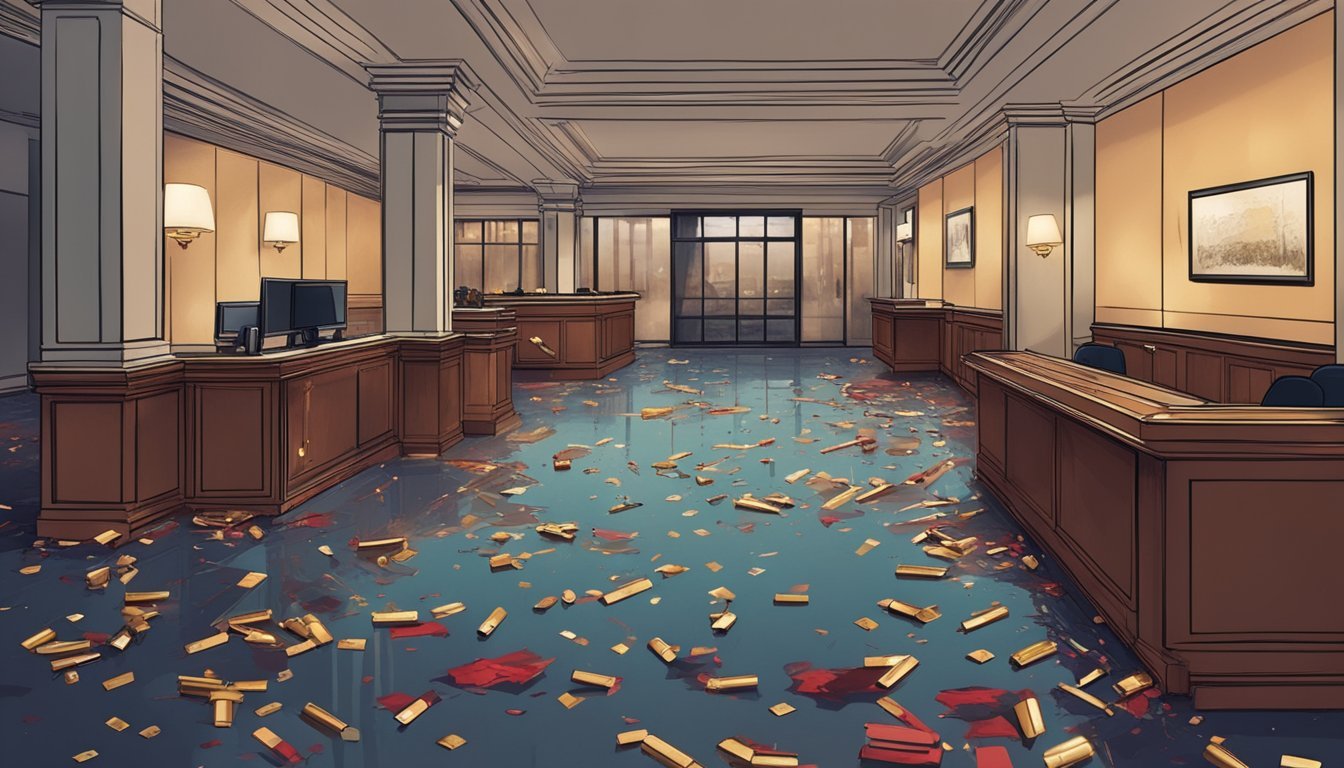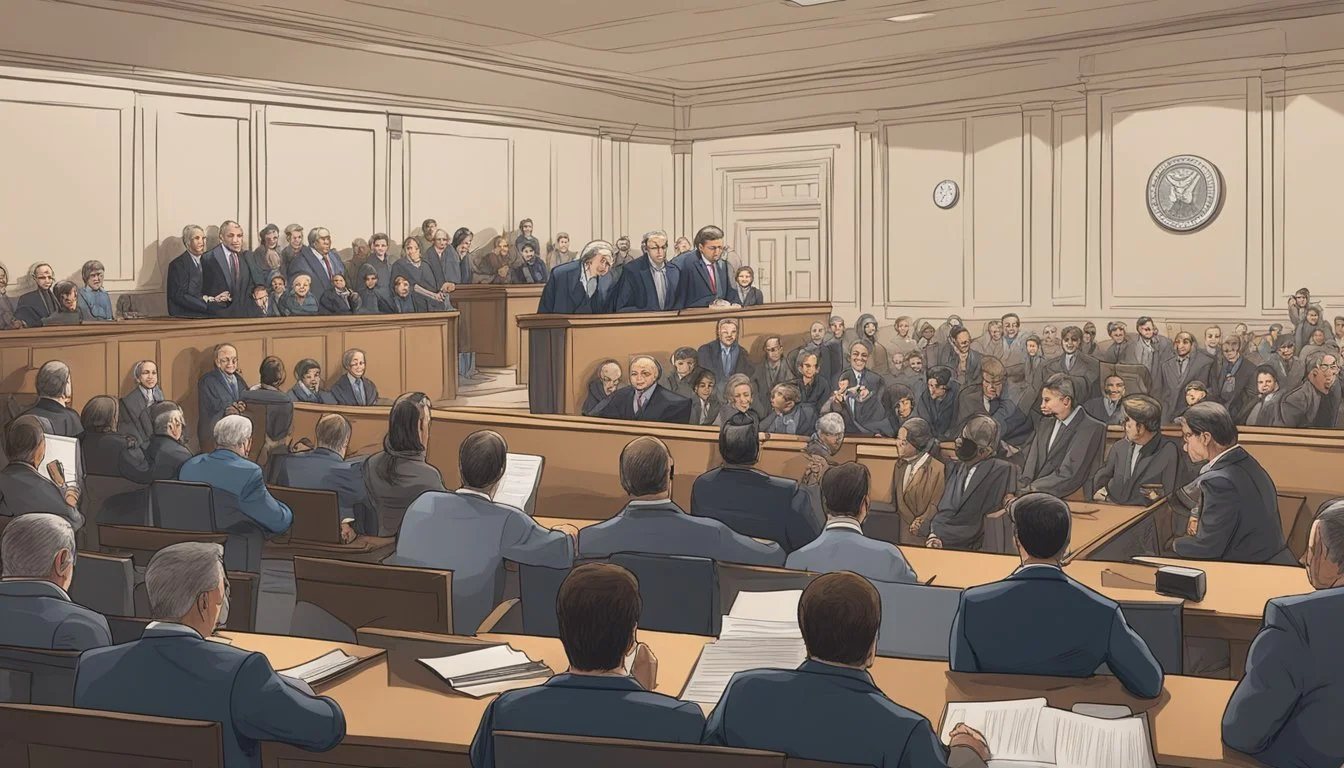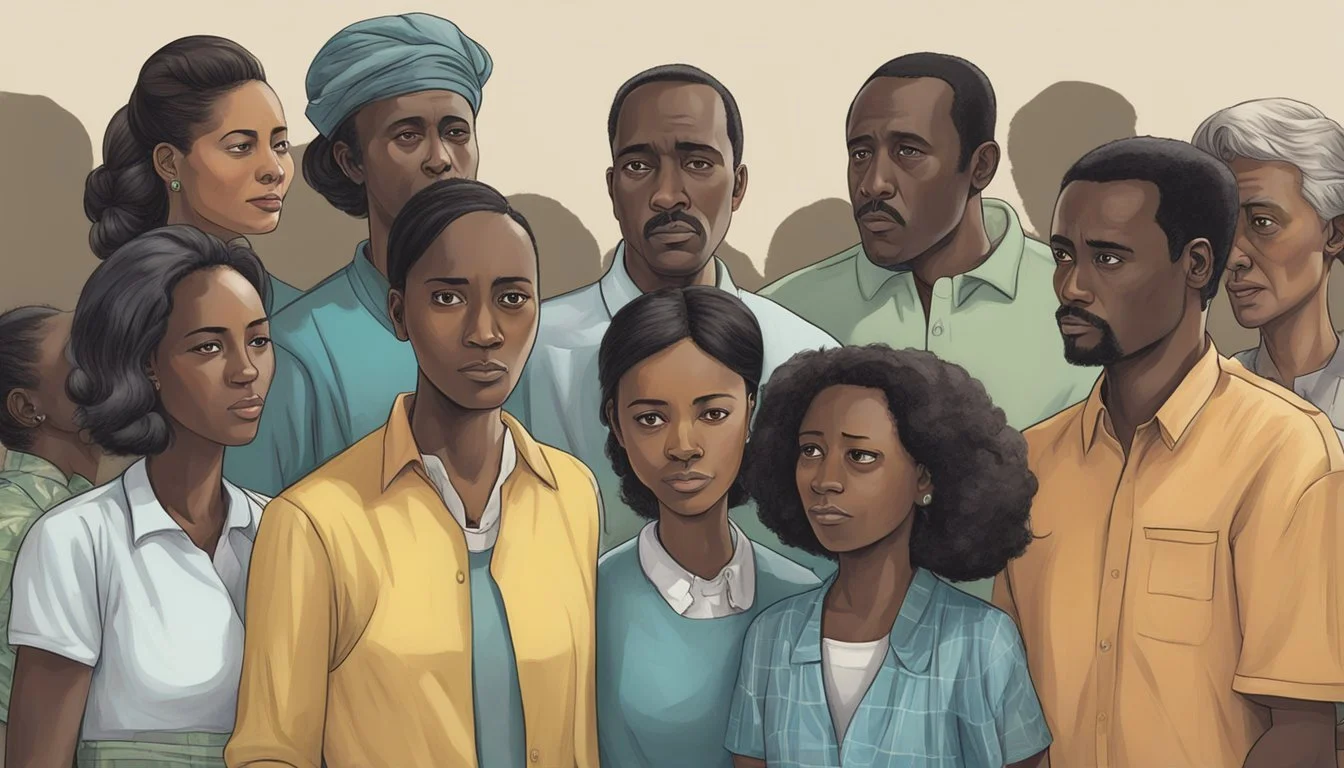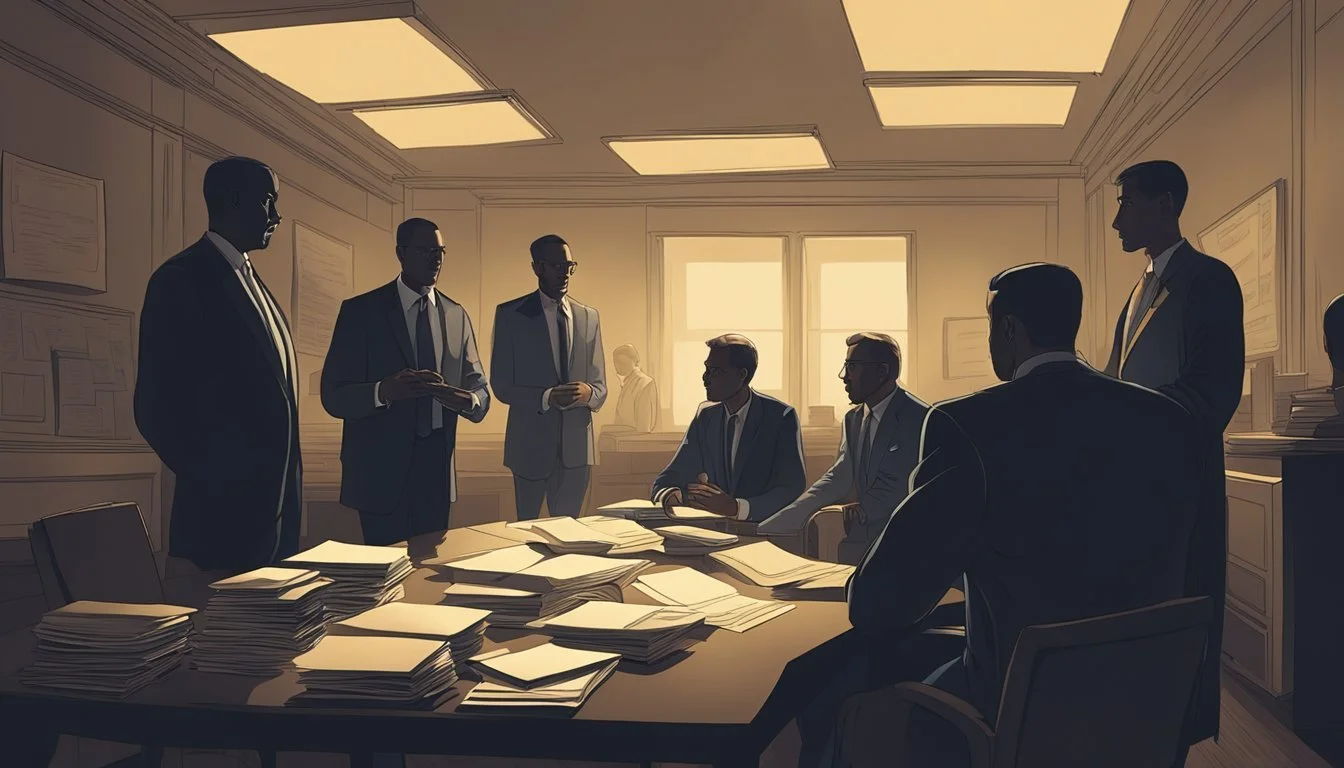Exposing War Crimes: The Real Story Behind Hotel Rwanda
Unraveling the Rwandan Genocide
The 1994 Rwandan genocide shocked the world with its brutality, resulting in the deaths of approximately 1 million people in just 100 days. Amidst this horrific violence, one man's actions stood out as a beacon of hope and humanity. Paul Rusesabagina, the manager of the Hotel des Mille Collines in Kigali, saved hundreds of lives by sheltering Tutsi refugees in his hotel.
Rusesabagina's heroic efforts during the genocide were immortalized in the 2004 film "Hotel Rwanda," but the real story behind his actions and subsequent life reveals a complex web of politics, persecution, and controversy. In recent years, Rusesabagina has faced terrorism charges in Rwanda, leading to his arrest and conviction. This turn of events has raised questions about the Rwandan government's motives and the ongoing struggle for justice and reconciliation in the country.
The story behind "Hotel Rwanda" serves as a stark reminder of the lasting impact of genocide and the challenges faced by those who speak out against oppression. It highlights the intricate relationships between history, politics, and individual actions in shaping narratives of heroism and dissent.
Context of the Rwandan Genocide
The Rwandan genocide of 1994 stemmed from longstanding ethnic tensions and colonial influences. It resulted in the deaths of an estimated 800,000 to 1 million people, primarily Tutsis, over a 100-day period. The international community's response was inadequate and delayed.
Historical Background
Ethnic divisions between Hutus and Tutsis were exacerbated during Belgian colonial rule. The Belgians favored the Tutsi minority, granting them greater privileges and power. This created resentment among the Hutu majority.
After Rwanda gained independence in 1962, Hutu leaders came to power. Periodic violence against Tutsis occurred in the following decades. Tensions escalated in the early 1990s during a civil war between the Hutu-led government and the Tutsi-dominated Rwandan Patriotic Front (RPF).
On April 6, 1994, the plane carrying Rwandan President Juvénal Habyarimana was shot down. This event triggered the genocide, as Hutu extremists blamed the Tutsis and began a campaign of mass killings.
International Response
The international community largely failed to intervene in the Rwandan genocide. The United Nations had a peacekeeping force in Rwanda, but it was small and under-equipped. When the violence erupted, most UN peacekeepers were withdrawn.
The United States, still reeling from a failed intervention in Somalia, was reluctant to get involved. Other Western nations also hesitated to take action. This lack of response allowed the killings to continue unchecked for months.
France eventually launched Operation Turquoise in late June 1994, establishing a "safe zone" in southwestern Rwanda. However, critics argue this intervention came too late and may have allowed some perpetrators to escape justice.
The Story of 'Hotel Rwanda'
'Hotel Rwanda' depicts the harrowing events of the 1994 Rwandan genocide through the lens of hotel manager Paul Rusesabagina. The film highlights acts of courage amid widespread violence and explores complex themes of heroism and survival.
Plot Overview
'Hotel Rwanda' is set during the Rwandan genocide in 1994. Paul Rusesabagina, a Hutu hotel manager, shelters over 1,200 Tutsi refugees at the Hôtel des Mille Collines in Kigali. The film portrays Rusesabagina's efforts to protect these refugees from Hutu militias.
As violence escalates, Rusesabagina uses his connections and resourcefulness to keep the hotel's inhabitants safe. He bribes officials, calls in favors, and negotiates with armed forces to prevent attacks on the hotel.
The narrative culminates with the arrival of UN peacekeepers, who evacuate the refugees to safety. Throughout, the film showcases the personal toll on Rusesabagina and his family as they navigate this dangerous period.
Main Characters
Paul Rusesabagina: The protagonist, a Hutu hotel manager who risks his life to save Tutsi refugees. He's portrayed as clever, compassionate, and determined.
Tatiana Rusesabagina: Paul's wife, a Tutsi. She supports her husband's efforts while fearing for their family's safety.
Colonel Oliver: A fictional character based on Canadian General Roméo Dallaire, who led the UN peacekeeping mission in Rwanda.
George Rutaganda: A Hutu businessman and militia leader, representing the perpetrators of the genocide.
These characters illustrate different perspectives on the conflict, from heroic intervention to murderous extremism.
Critical Reception
'Hotel Rwanda' received widespread acclaim upon its release in 2004. Critics praised its powerful storytelling and Don Cheadle's performance as Paul Rusesabagina.
The film earned three Academy Award nominations:
Best Actor (Don Cheadle)
Best Supporting Actress (Sophie Okonedo)
Best Original Screenplay
Many viewers lauded the film for raising awareness about the Rwandan genocide. However, some criticized it for simplifying complex historical events and potentially glorifying Rusesabagina's actions.
Historians and survivors have since questioned the accuracy of Rusesabagina's portrayal. This debate highlights the challenges of adapting real-life events for cinema.
Paul Rusesabagina's Role
Paul Rusesabagina gained international recognition for his actions during the Rwandan genocide. His story became the basis for the film "Hotel Rwanda," but later faced legal troubles and accusations from the Rwandan government.
Biographical Profile
Paul Rusesabagina was born in 1954 in Rwanda. He worked as a hotel manager at the Hôtel des Mille Collines in Kigali during the 1994 genocide. Rusesabagina sheltered over 1,200 Tutsi and moderate Hutu refugees at the hotel, using his connections and negotiation skills to protect them from Hutu militias.
After the genocide, he fled Rwanda and settled in Belgium. Rusesabagina became an outspoken critic of the Rwandan government under President Paul Kagame. He established the Hotel Rwanda Rusesabagina Foundation to support survivors and promote reconciliation.
Depiction in the Film
The 2004 film "Hotel Rwanda" portrayed Rusesabagina as a heroic figure. Actor Don Cheadle played him, earning an Academy Award nomination for his performance. The movie depicted Rusesabagina's efforts to save refugees by using his influence and resources as a hotel manager.
"Hotel Rwanda" brought international attention to the Rwandan genocide and Rusesabagina's actions. It presented him as a compassionate and resourceful individual who risked his life to protect others. The film's success elevated Rusesabagina to global prominence as a humanitarian figure.
Controversies and Challenges
Rusesabagina's post-genocide activities led to conflicts with the Rwandan government. He accused President Kagame's administration of human rights abuses and suppressing opposition. In response, Rwandan officials questioned the accuracy of his portrayal in "Hotel Rwanda" and his actual role during the genocide.
In August 2020, Rusesabagina was arrested by Rwandan authorities. He faced charges of terrorism, arson, kidnapping, and murder related to alleged support for armed groups opposing the government. His arrest and subsequent trial drew international criticism, with supporters claiming it was politically motivated.
Rusesabagina's case highlights the complex political landscape in post-genocide Rwanda and the challenges faced by vocal critics of the government.
Investigative Journalism and War Crimes
Investigative journalists play a crucial role in exposing war crimes and bringing them to public attention. Their work often faces significant challenges but can have a profound impact on shaping public perception and pursuing justice.
Key Investigations
Renowned investigations into war crimes include the reporting on the My Lai massacre during the Vietnam War by Seymour Hersh. His exposé revealed the killing of hundreds of unarmed civilians by U.S. soldiers, sparking global outrage.
More recently, investigations into the Srebrenica genocide in Bosnia uncovered mass graves and systematic killings. Journalists like Roy Gutman and David Rohde risked their lives to document these atrocities.
The International Consortium of Investigative Journalists (ICIJ) has conducted extensive investigations into global conflicts, using collaborative networks to uncover hidden truths.
Impact on Public Perception
Investigative reporting on war crimes often shifts public opinion and government policies. The publication of photos from Abu Ghraib prison in Iraq led to widespread condemnation of prisoner treatment and military reforms.
Media coverage of the Rwandan genocide increased international awareness and eventually prompted intervention. Journalists like Philip Gourevitch brought the scale of the atrocities to light through in-depth reporting.
Social media and citizen journalism now complement traditional investigative work, allowing for real-time documentation of conflicts. This has been evident in Syria, where civilian footage has exposed chemical weapon attacks.
Challenges for Journalists
War zone reporting carries significant personal risks. Journalists face threats of violence, kidnapping, and death while investigating crimes in conflict areas.
Access to information can be severely restricted in war-torn regions. Governments and military forces often attempt to control the narrative, limiting journalists' ability to gather evidence.
Verifying information in chaotic conflict situations presents another major hurdle. Journalists must navigate complex webs of propaganda, misinformation, and conflicting accounts to uncover the truth.
Legal challenges also arise, with some governments using libel laws or national security claims to suppress reporting on war crimes. This can lead to self-censorship and hinder the exposure of crucial information.
The Impact of Media on Justice
Media coverage of war crimes and human rights abuses can significantly shape public opinion and influence legal proceedings. News reports, films, and documentaries play a crucial role in exposing atrocities and pushing for accountability.
Trial by Media
High-profile media coverage often precedes formal legal action in war crimes cases. The film "Hotel Rwanda" brought international attention to the 1994 genocide, sparking public outrage and calls for justice. This media spotlight can pressure authorities to investigate and prosecute alleged perpetrators.
However, extensive pre-trial publicity can also pose challenges. It may taint potential jury pools or influence witness testimony. In some cases, defense lawyers argue that their clients cannot receive a fair trial due to biased media coverage.
Media narratives can simplify complex conflicts, potentially overlooking nuanced factors. This oversimplification may lead to public misconceptions about the events and key figures involved.
Influence on International Law
Media exposure of war crimes has contributed to the development of international humanitarian law. Shocking images and reports from conflicts have galvanized support for new legal frameworks and institutions.
The creation of the International Criminal Court in 2002 was partly driven by media coverage of atrocities in Rwanda and the former Yugoslavia. Public awareness and outrage pushed governments to establish a permanent court for prosecuting war crimes.
Media attention also helps maintain pressure on states to cooperate with international tribunals. News coverage of fugitives and ongoing investigations keeps these issues in the public eye, making it harder for governments to ignore their obligations.
Documentaries and Advocacy
Documentaries play a vital role in exposing war crimes and advocating for justice. Films like "The Act of Killing" and "The Look of Silence" have brought renewed attention to past atrocities and sparked debates about accountability.
These works often provide in-depth analysis and personal stories that news reports cannot capture. By humanizing victims and survivors, documentaries can generate empathy and support for justice efforts.
Many documentary filmmakers actively engage in advocacy, using their work to lobby policymakers and raise funds for victims. This blurs the line between journalism and activism, raising questions about objectivity and ethics in reporting on war crimes.
Survivors' Accounts
Firsthand accounts from survivors provide crucial perspectives on the events portrayed in "Hotel Rwanda." These testimonies offer a more nuanced understanding of the genocide and its aftermath.
Testimonies and Memoirs
Survivors have shared their experiences through various channels, including books, documentaries, and interviews. Immaculée Ilibagiza's memoir "Left to Tell" recounts her harrowing 91 days hiding in a bathroom with seven other women during the genocide. She details the loss of her family and her journey of forgiveness.
Révérien Rurangwa's "Genocide: My Stolen Rwanda" offers a child survivor's perspective. Rurangwa describes the brutal attack on his family and his subsequent struggle with trauma and identity.
These accounts often challenge simplified narratives, revealing complex interpersonal dynamics and individual acts of courage amid widespread violence.
The Role of Survivor Networks
Survivor networks play a vital role in preserving memory and promoting healing. Organizations like IBUKA (Remember) in Rwanda bring together genocide survivors to support one another and advocate for justice.
These networks facilitate the sharing of stories and provide platforms for survivors to speak out. They organize commemoration events, support legal proceedings against perpetrators, and work to prevent future atrocities.
Survivor testimonies collected by these groups have been crucial in international criminal trials and truth commissions. They contribute to a more comprehensive historical record and help counter denial and revisionism.
Ethical Considerations
The portrayal of war crimes in "Hotel Rwanda" raises complex ethical questions about representation and responsibility. These issues extend beyond the film itself to broader concerns about how traumatic historical events are depicted.
Narrative Accuracy vs. Artistic License
"Hotel Rwanda" takes some liberties with historical facts to create a compelling narrative. The film simplifies complex political dynamics and focuses on Paul Rusesabagina's heroic actions. This artistic choice allows for a more accessible story but risks oversimplifying the genocide's nuances.
Critics argue that such simplification can lead to misunderstandings about the conflict's root causes. The film's portrayal of UN peacekeepers has also been questioned for potentially downplaying their efforts.
Supporters contend that the film's emotional impact raises awareness about the genocide. They argue that some artistic license is necessary to engage audiences with difficult subject matter.
Privacy and Trauma
Depicting real-life trauma on screen raises concerns about the privacy and well-being of survivors. "Hotel Rwanda" portrays violent events that deeply affected many individuals.
Filmmakers must balance the need to accurately represent historical atrocities with sensitivity to survivors' experiences. Some argue that graphic depictions can re-traumatize survivors or exploit their suffering for entertainment.
Others contend that sanitizing such events diminishes their impact and importance. They believe that honest portrayals, while difficult, are necessary to prevent future atrocities.
Obtaining consent from those portrayed or their families is crucial. Filmmakers should consider offering psychological support to those involved in production.
Reflections and Lessons Learned
The events depicted in "Hotel Rwanda" sparked global discussions on human rights and genocide prevention. These conversations led to reforms in international law and educational initiatives aimed at fostering peace and understanding.
Global Human Rights Movement
The Rwandan genocide galvanized human rights advocacy worldwide. International organizations intensified efforts to prevent and respond to mass atrocities. The United Nations established the Office on Genocide Prevention and the Responsibility to Protect in 2004.
This initiative aims to provide early warning of potential genocides and coordinate international responses. NGOs expanded their work in conflict zones, focusing on documenting abuses and supporting survivors. Social media and technology have enabled faster reporting of human rights violations, increasing pressure on governments to act.
Education and Prevention
Educational programs about the Rwandan genocide have been implemented globally. Many countries now include genocide studies in their curricula, teaching students about warning signs and prevention strategies. Museums and memorials dedicated to the Rwandan genocide have been established, serving as powerful educational tools.
These institutions offer visitors firsthand accounts from survivors and historical context. Universities have developed specialized courses and research programs focused on genocide prevention and conflict resolution. Training programs for diplomats, peacekeepers, and aid workers now routinely include modules on recognizing and responding to early signs of mass violence.





